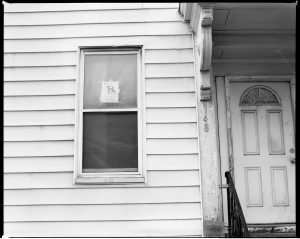How We Got To TARA
History is full of unintended consequences. Our story for how the Tribunal Adjudicative Records Act (“TARA”) came into existence. In 2014, the Toronto Star was working on an investigative report. In the process of the Toronto Star’s investigation, they made a request to the Ontario Labour Relations Board for various tribunal records. The Labour Relations Board agreed and provided the requested documents. Sometime later, the Labour Relations Board changed their minds and wanted the documents back. The Toronto Star said no, these documents are part of the public record. This incident inspired the Toronto Star to later file an action against the Ministry of the Attorney General over the issue of having access to tribunal records, tribunals such as the Landlord and Tenant Board.[efn_note]Secrecy often chokes off public information from tribunal hearings, The Toronto Star, https://www.thestar.com/news/canada/2017/02/17/secrecy-often-chokes-off-public-information-from-tribunal-hearings.html, retrieved June 25, 2020[/efn_note]
On April 27, 2018, the Court released their decision, confirming that the public has a right to access tribunal records and that the Freedom of Information Act does not apply to tribunal records.[efn_note]Toronto Star v. AG Ontario, 2018 ONSC 2586 (CanLII), <https://canlii.ca/t/hrq6s>, retrieved on 2021-06-24[/efn_note] The Court struck down the applicability of the Freedom of Information Act.
The Legal Right At Issue
The right in question being the open court principle. This means anything that happens during a court matter is 100% accessible by the public, subject to either a publication ban or confidentiality order. This follows the mantra that justice must be seen and allows the courts to operate transparently. Sometimes when the Court makes a ruling that is as extreme as striking down a law. The Court will stay (suspend) their decision for a period of time. As part of this decision, the Court stayed their decision. This was done to allow the Ontario Legislature time to draft a proper law. That law would be TARA.
Before this decision, if someone wanted to access tribunal matter records, they would have to file a freedom of information request. Unfortunately, a freedom of information request can be denied for very specific reasons. This ultimately became a barrier to the open court principle.
Open Tribunal Principal
On June 30, 2019, TARA came into force with the purpose of codifying the open court principle for tribunals.[efn_note]Tribunal Adjudicative Records Act, https://www.ontario.ca/laws/statute/19t07, retrieved June 24, 2021[/efn_note] As of June 24, 2021, TARA covers 23 different tribunals in Ontario.[efn_note]O. Reg. 211/19: GENERAL, https://www.ontario.ca/laws/regulation/190211, retrieved June 24, 2021[/efn_note]
TARA does not just give access to decisions, it gives access to everything. This includes the initial application, evidence, transcripts, and more. With a greater push to have anything digital, it becomes extremely easy to get entire tribunal files.
How It Works
In order to do a TARA request, you send in a request to Access.TO-TDO@ontario.ca with the required information. Caselaw.Ninja has a wonderful guide on how to put together a TARA request for yourself.
Why This Matters for the Landlord and Tenant Board
Unlike some tribunals such as the Human Rights Tribunal, which publishes every decision or the Licence Appeal Tribunal, which publishes every reconsideration (appeal) decision. The Landlord and Tenant Board has trouble publishing all of their decisions.
Why does this matter? It matters because with access to more information, we at Riverview Legal can be even more effective advocates. We can see if a Landlord has done previous evictions using the N12. If a Landlord has been using the N12 for illegal evictions. We can hold that Landlord to account. Does the Landlord have a track record of failing to do maintenance. With that kind of information, we can establish a pattern of failing to meet maintenance obligati0ns. We can see if a Landlord has a history of illegally locking out tenants. The Landlord and Tenant Board isn’t going to look favourly on a Landlord with a history of illegal lockouts.
With this information, we can continue to push the limits of the law to protect our clients’ rights.




